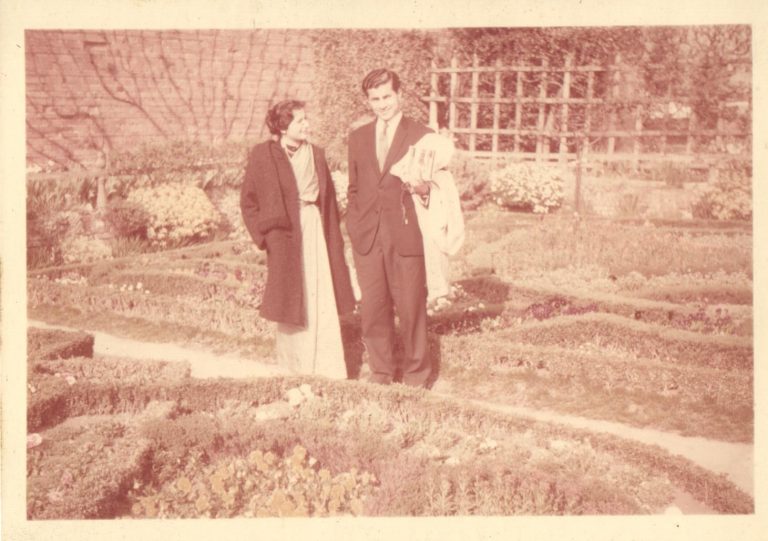
Manik Wadhwani was born in Karachi in 1936. His grandfather, Hiranand, was the headmaster of the Municipal High School in Jacobabad, and his father, Tekchand, studied at London School of Economics.
Saaz Aggarwal
Commitment to education
The Amils are a Sindhi community known for their commitment to education. In historic times, they worked in the courts of the princes of Sindh and rose to senior positions, many receiving grants of land as rewards for their contribution. In the Sindh of British India, they held senior administrative positions. Many
Manik Wadhwani was born in Karachi in 1936. His grandfather, Hiranand, was the headmaster of the Municipal High School in Jacobabad, and his father, Tekchand, studied at London School of Economics and, on return, was appointed manager of Mercantile Bank in Bombay. Manik’s mother was Shanta, a lovely and wise young woman, and her father was Dr Gianchand Hingorani, one of the most highly skilled surgeons of his time. Manik was adored and pampered, but he grew up to be sensible and admirably disciplined.
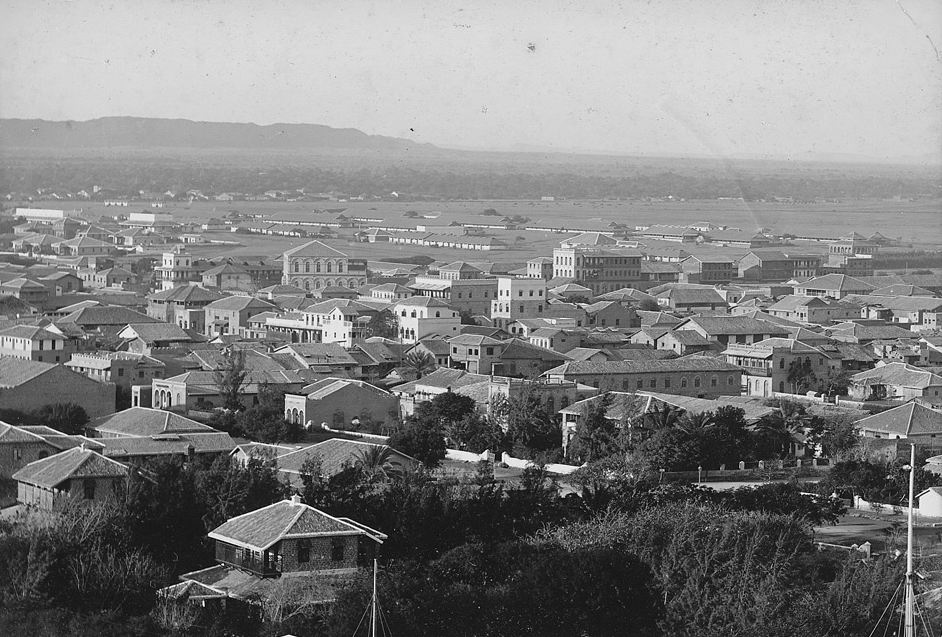
Growing up in Partitioned India
After Partition, Tekchand and his family settled in Delhi where Manik joined St. Stephen’s College to study History, with the intention of joining the Indian Administrative Service (IAS), a career that would provide meaningful contribution to newly-Independent India as well as a comfortable life of position and privilege. Manik completed Masters in History in 1957 at the top of his class, and ranked eighth in the IAS examination which was attempted by 50,000 but passed by only eighty. It was a moment of glory, reported in all the main newspapers of India, and announced on All India Radio.
Joining the 1958 batch of the Indian Administrative Service (IAS), Manik, with no state of his own – as his ancestral homeland Sindh was given intact to Pakistan – was appointed to the Uttar Pradesh cadre. He married Shukla Nangia, a friend from college when she was a student at Miranda House. They had attended literary and dramatic events together, and headed opposing college debate teams. While Manik topped the graduating class in History that year, Shukla topped hers too, in Literature. The entire IAS class of 1958 attended Manik and Shukla’s wedding reception at the Imperial Hotel in Delhi.
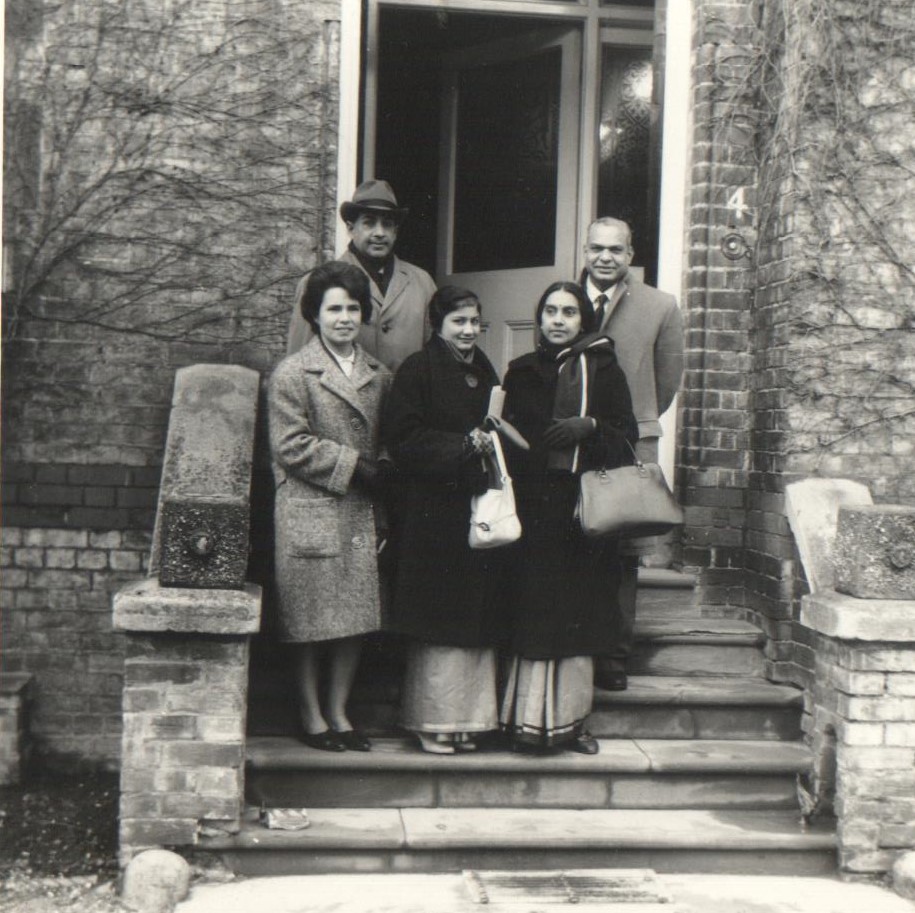 An exemplary career
An exemplary career
Manik was appointed Assistant Collector and posted in Rampur, his and Shukla’s first taste of life in the districts. Beyond the sheen of privilege and glamor, the realities were unpaved roads and homes infested with insects and geckos. Electricity, when present, was prone to fluctuation. The next posting was to Agra, where Manik was City Magistrate. When Queen Elizabeth and Prince Philip visited in 1961, Manik was responsible for making the arrangements.
It was only fitting that Manik should now visit the queen! Travelling overseas was a rare privilege for Indians, with the country’s acute shortage of foreign exchange, a natural consequence of colonial rule, and which the years of economic struggle following Independence had not yet resolved.
However, Manik was entitled to a sabbatical. He procured a scholarship from Leeds University for an MBA. Given the exchange rate, however, they could not live comfortably on Manik’s rupee salary in the UK. Shukla considered applying for a job as a salesgirl in a store. However, her education and experience in dramatics brought her a better position. On a visit to the Indian embassy on a social occasion (where an Indian meal was always an enjoyable highlight!) they met Sir Maurice Gwyer – former Vice Chancellor of Delhi University who had seen Shukla perform in Shakespeare dramatics. Sir Maurice arranged for her to appear before the Education Board to be assessed as a school teacher. She was soon placed at a school in a nearby town.
Shukla enjoyed her work very much and it also gave them the funds to rent a flat of their own, and to enjoy travelling across England during the holidays. Manik worked hard, did well, and acquired a professional edge which he implemented successfully in his future life.
After the two fulfilling years, Manik returned to his home district of UP for another complex assignment as District Magistrate of Lalitpur, an area famous for the dacoits who lived in the surrounding ravines. HE was in charge of working with the police to ensure that the dacoit chases were conducted within the legal framework, and every few days he would accompany police possés into the ravines. They were known to be ruthless – but, as Manik specified, they were very decent, and nobody was killed on his watch.
In Lalitpur, Manik and Shukla lived in an enormous house, once grand, but now crumbling and dilapidated. There was no electricity. Bats flew across the roof in the evening and one day, Shukla encountered a cobra in the bathroom! When Manik went out on expeditions, the superintendent of police would reassure her that he would keep her husband safe from harm. One night, alone in the house, she imagined she heard a tiger roaring outside. When she asked the head chowkidar he replied, “Of course they come on your lawn. But why should you worry? We’re surrounding the house to look after you, and they know we’re here!” When Shukla wanted to visit the shops to buy fabric for curtains, he refused, declaring that the Collector does not go shopping. The shops must come to the Collector. And shopkeepers arrived with bundles for her to pick from, as was the tradition in colonial times.
Contribution and development
In 1964, Manik was posted to Tehri Garhwal as the District Magistrate, the start of a blissful stretch of living for some years in the Himalayas. They sat in the garden of their home in Narinder Nagar at dusk, watching the lights of Mussoorie on one side and Rishikesh and Haridwar on the other. The beautiful house had once belonged to the Prime Minister of the princely state of Tehri Garhwal, and it had windows with views of the Himalayas all around it.
Manik toured the district in a jeep. Once a month, when the jeep went to Dehradun to be serviced, he and Shukla would go along to watch a movie, have dinner at the Kwality restaurant and stay overnight at the historic circuit house that hosted other VIPs, including India’s first Prime Minister, Jawaharlal Nehru. Manik’s work, and the special assignments he carried out successfully, resulted in his being appointed District Magistrate of the state’s summer capital, Nainital, when he was just twenty-eight years old.
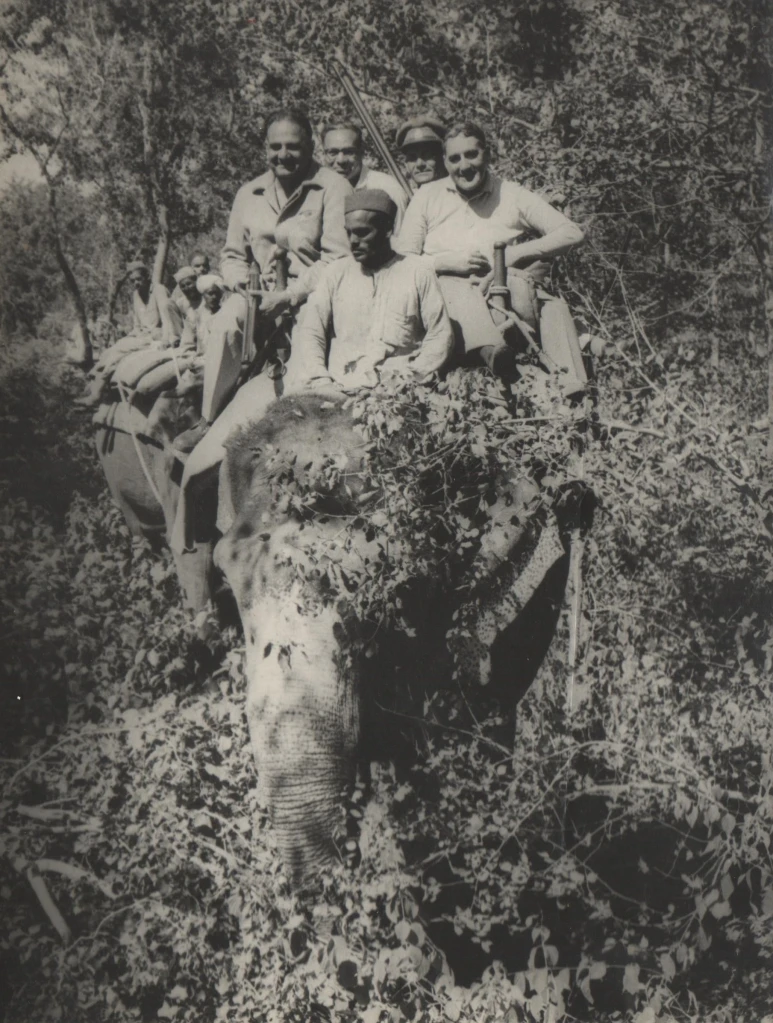
Image courtesy Shukla Wadhwani
The Terai was still quite uncultivated; there were parts which the jeep could not penetrate, and Manik’s tours through these thick jungles were done on elephant-back. With their little daughter Vanny sitting on Shukla’s lap, the family went together everywhere, staying in forest guesthouses when Manik travelled on inspection tours. Here law-and-order was not a challenge; the focus was on development. As Commissioner of Kumaon, Manik worked hard to establish a fruit belt from Chamba to Mussoorie, building roads, motivating retired senior army personnel to invest in the area, and providing support for them to set up state-of-the-art fruit farms. Today Terai has the most modern farms in India. Manik also set up two sugar factories; the best sugar in India continues to be from Terai, Nainital. In time, Manik would be appointed chairman of the UP Sugar Corporation.
Touched by a living saint
The event that touched Manik and Shukla’s lives more than any other was when Neemkaroli Baba came to visit. Shukla’s father Dhaluram Nangia had expressed a wish to meet him, a living saint known to be meditating in a cave on the hillside in the area. This was not Manik’s idea of a good time but, to humour his father-in-law, he got his station wagon out on a Sunday morning and they drove the hundred-odd miles of narrow, winding mountain roads, to the Baba’s abode. As they drove towards a mountain stream they had to cross to get there, they could see two monks, clad in white robes, standing and waiting. Baba, in his omniscience, knew that Wadhwani was on the way to see him, and had sent them down the hill to escort him to his cave! That day, Baba told them to sit in front of him, and poured blessings over them. Manik experienced a feeling he had never known was possible, a strong connection to the divine – an unexpected link that connected him to the spiritual traditions of his ancestors.
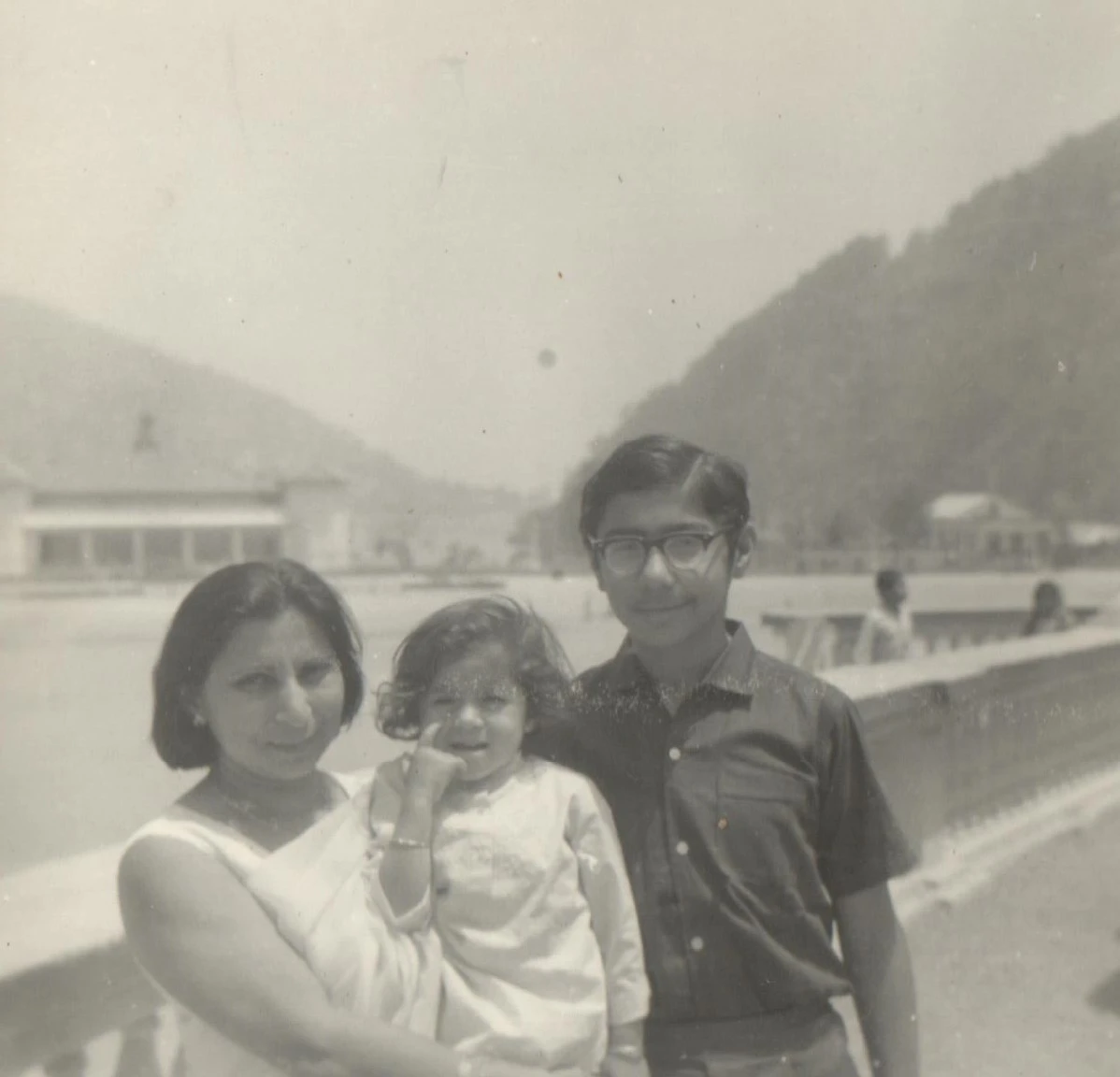
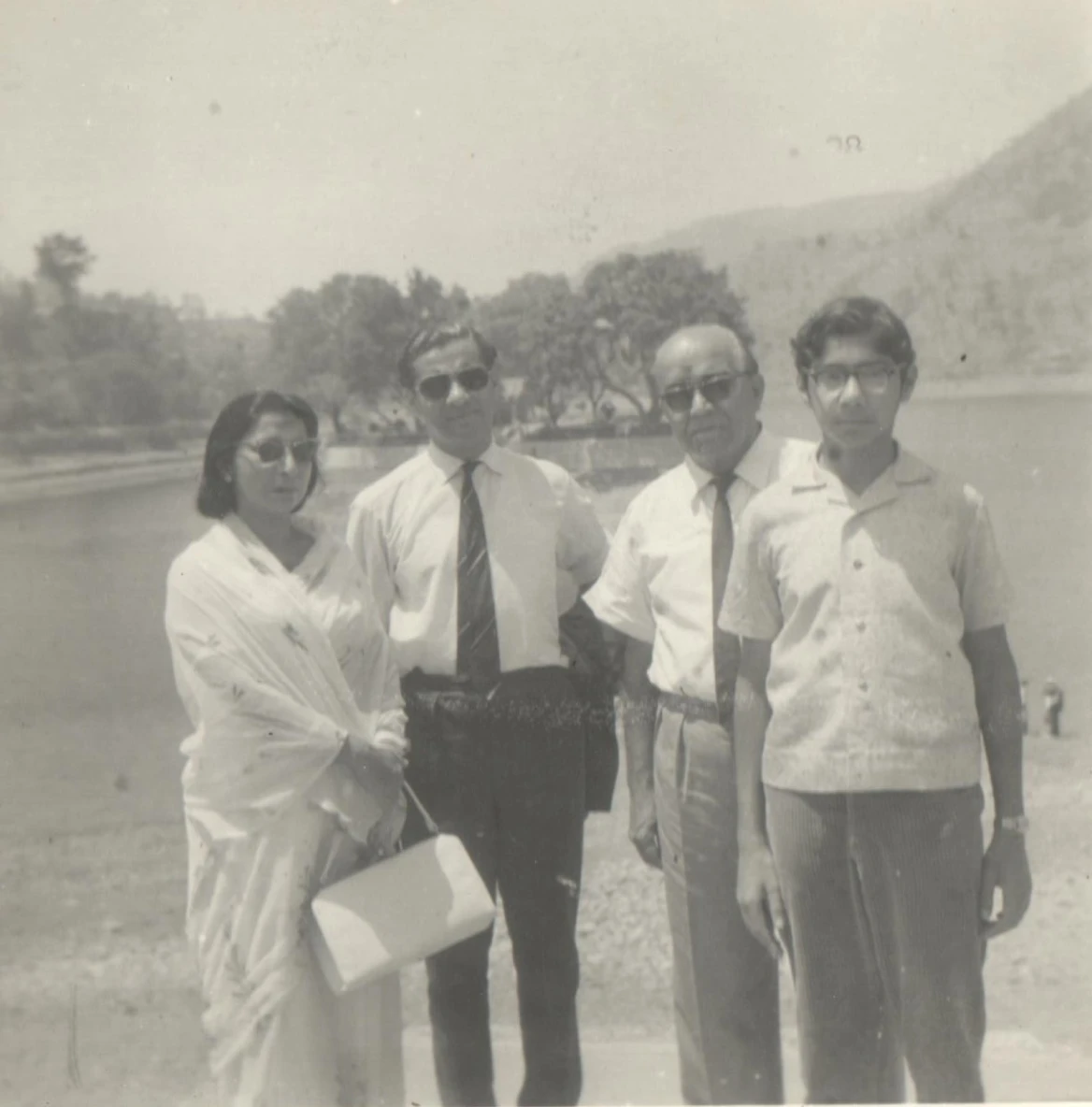
Neemkaroli Baba would later be known for having devotees like Steve Jobs and Mark Zuckerberg. He was equally well known for rejecting insincere followers. His intuition was experienced by many, including Manik, and the tales of his powers are legendary. So, an unexpected visit from the hermit himself was not something anyone could have imagined. A few Sundays later, Shukla was surprised to see Manik’s Personal Assistant, Janardhan, running towards the house. “Baba is coming to see you!” he called out in excitement. They walked together to the gate and, looking down the hill, Shukla could see Baba striding up. There was a huge and enthusiastic crowd following him, and it seemed like the whole village was coming to visit too.
“Wadhwani, you haven’t come to see me, I had to come to see you!” Baba exclaimed as he entered. Shukla heard the word ‘dhoti’ and Janardhan explained to her that Baba had come to give his dhoti to Manik. It was the ultimate blessing, which symbolized that he was transferring a part of himself to a follower. She quickly made arrangements for a new dhoti for Baba. Baba folded his old one and, making Manik and Shukla sit in front of him, said to Manik with a ceremonial blessing: “Keechad mein haath kabhi nahin dalna.” Literally this means, “never put your hand in the sludge”; Baba was saying it as appreciation for Manik’s reputation for sterling honesty, and encouragement to continue to remain clean and sincere always. People would talk about this extraordinary event for months and years to come. Manik and Shukla began visiting Baba every Sunday.
Nature’s beauty and close family ties
Beyond the accomplishment, the glamor and the growing regard in which he was held professionally and personally, Manik’s happiest memories are of his family visiting him in the Himalayas. The IAS officers who administered the districts were treated like royalty, with palatial government homes, droves of cleaners, cooks, gardeners, and chauffeur-driven cars, and Manik was proud and delighted to host his family in these facilities, driving them through the Himalayan mountains on narrow dirt roads with rivers raging hundreds of feet below. In the cool morning sunshine, they sat in his garden eating vegetables that were grown right there, and in the evenings, enjoyed the local social life. As district magistrate, Manik was president of the Boathouse Club and chairman of the Nainital Gymkhana Club. He was the most highly respected man in Nainital and it made Shanta and Tekchand so very proud to see. They also enjoyed dining at the Boathouse Club – and Chef Imamullah’s meat delicacies would remain fresh in the minds of all the family!
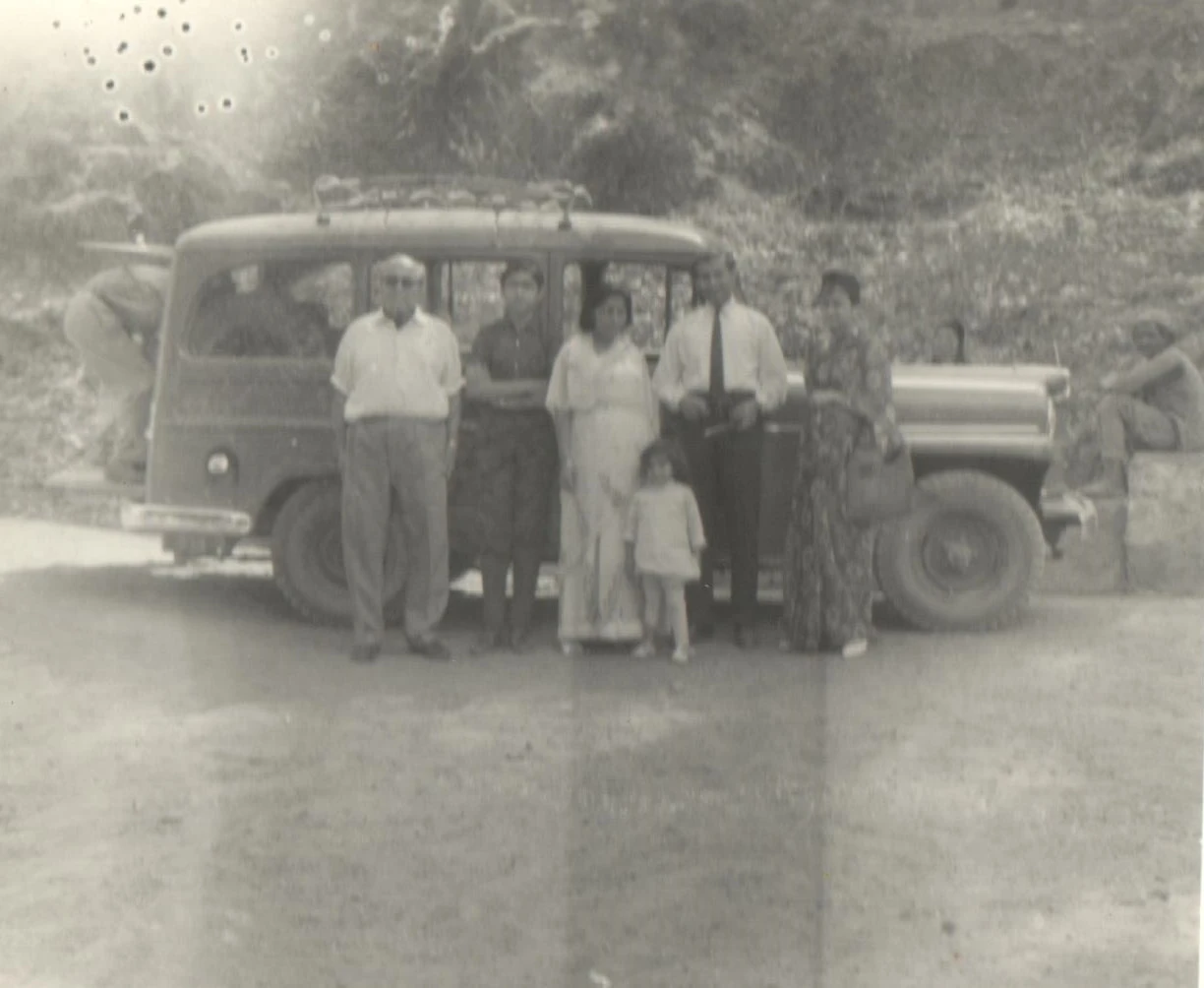
Contribution to another country
After a posting in Delhi, Manik was nominated to a panel of the Commonwealth Secretariat and United Nations Development Programme and this led to a prestigious assignment as Adviser, Commonwealth Secretariat, to eight countries of the South Pacific, located in Suva, Fiji. Manik laid the foundation for a merit-based selection process for administrative posts in the Government of Fiji. He created an independent body for recruitment, started management training programmes for senior officers, and create a promotion policy with structured performance appraisals, a wonderful contribution to the progress and development of another country.
Secretary, GOI
In 1985, at the end of the permitted five-year absence from the IAS, Manik returned to Delhi. He was admired for his competence and his honesty, and successive Chief Ministers of UP promoted him to increasingly important posts including Chairman of the UP-State Sugar Corporation and Director General of the Indian Institute of Public Administration. Manik retired as Secretary, Government of India. Scheduled to retire in 1996, he received repeated extensions and continued in office for another five years.
IAS officers wielded power and the decisions they made affected many people and organizations. However, their salaries were modest, and corruption was common. Some of Manik’s colleagues retired with the wealth of millionaires. Manik never took bribes, and would have retired with virtually no money. However, in his Fiji assignment, he earned a high salary in tax-free British pounds. While his tastes remained modest, this enabled a comfortable retirement.
Sadly, Manik contracted Covid 19 during the global pandemic and passed away on 30 November 2020, two years to this day.
___________________
 Saaz Aggarwal is an independent researcher, writer and artist based in Pune, India. Her body of writing includes biographies, translations, critical reviews and humor columns. Her books are in university libraries around the world, and much of her research contribution in the field of Sindh studies is easily accessible online. Her 2012 Sindh: Stories from a Vanished Homeland is an acknowledged classic. With an MSc from Mumbai University in 1982, Saaz taught undergraduate Mathematics at Ruparel College, Mumbai, for three years. She was appointed features editor at Times of India, Mumbai, in 1989.
Saaz Aggarwal is an independent researcher, writer and artist based in Pune, India. Her body of writing includes biographies, translations, critical reviews and humor columns. Her books are in university libraries around the world, and much of her research contribution in the field of Sindh studies is easily accessible online. Her 2012 Sindh: Stories from a Vanished Homeland is an acknowledged classic. With an MSc from Mumbai University in 1982, Saaz taught undergraduate Mathematics at Ruparel College, Mumbai, for three years. She was appointed features editor at Times of India, Mumbai, in 1989.
Courtesy: Saaz Aggarwal | Sindh Stories (Posted on November 30, 2022)